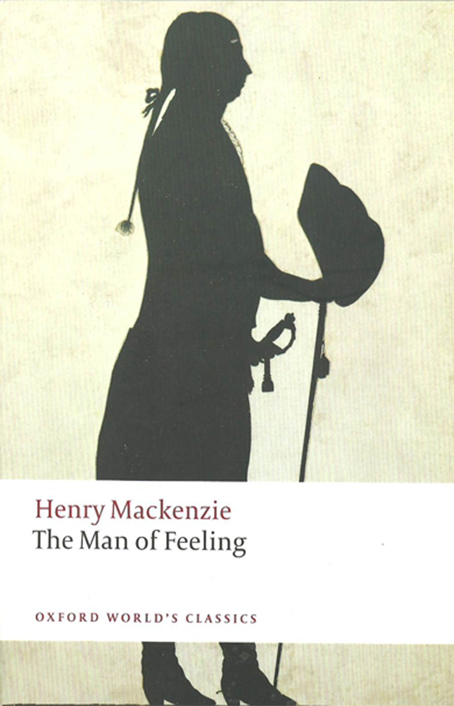Author : Henry Mackenzie
Nationality : Scottish
Publisher : Oxford World Classics
Genre : 18th Century, Scottish Literature, Sentimental Novel
Pages : 160
Blurb : In Mackenzie’s hugely popular novel of 1771, the sentimental hero’s capacity for fine feeling reveals his true virtue. A series of episodes demonstrates Harley’s benevolence in an uncaring world as he assists the downtrodden, loses his love, and fails to achieve worldly success. The novel asks a series of vital questions: what morality is possible in a complex, commercial world? Does trying to maintain it make you a saint or a fool? Can sentiment bond society or is it merely a luxurt for the leisured classes?
312 BOOK REVIEW : Rarely can tears have flowed so readily in any novel, before or since. Such is the deluge of weeping in ‘The Man of Feeling’ that the book even has an Index of Tears so that I can say with some authority that over the course of a mere 101 pages there are 50 where one character feels the need to burst into tears.
Like Walpole’s ‘Castle of Otranto’ the book focuses on a now extinct social phenomenon, but where Walpole’s novel was about medieval chivalry, Mackenzie shines his light on the Romantic invention of sensibility. Like Walpole’s novel it’s not entirely clear if the book is to be taken seriously or read as a satire of ridiculous extremes but Mackenzie’s later writings suggests a more nuanced position, the book is neither for or against sensibility, more an examination of its strengths and weaknesses – the author acknowledges sensibility could produce acts of great kindness, empathy and understanding, yet also encourage histrionics. foolish and impractical behaviour and a peculiar form of insincerity when the sentimental reaction becomes more important than the subject which elicits the reaction.
There is also a serious seam through the book that is of historical significance – the emergence of social mobility. Although today social mobility is generally thought of as a good thing, here it is portrayed as a lurking ever present terror that can strike without without warning, bringing with it impoverishment and destroying social standing. With industrialisation and the rise of new forms of economics, banking and commerce in the 18th century, the old social order was being blown apart. So were the old certainties about where a man’s position in the society was and where it would be in the future.
Previously, more often than not, a peasant was a peasant all his days, a minor gentleman, a minor gentleman all his days, and an aristocratic lord, an aristocratic lord all his days but now land was no longer the mark of the new super wealthy, the financial markets, with all their inherent fluctuations, were. Cash, not land was the dynamo of 18th century society and the huge increase in captial created havoc, skipping impishly from one pocket to the next, bringing luxury, wealth, comfort and influence to whom it fell on, but also bringing ruin, poverty, hardship, and destitution to whom it left behind. It is the latter who evoke the tear stained sensibility of Harvey, the books principle character.
The characters he meets along the way are people who have fallen on hard times, who were once at least comfortable but have now been thrust into the pits of hellish suffering by the new economics. We meet an out of work labourer now reduced to begging and con tricks. A woman confined to an asylum after her lover dies from fever chasing a fortune in the West Indies. Another, younger, woman, of lower middle class background, who has fallen into slum dwelling and prostitution after she becomes pregnant to her aristocratic lover. We also meet an old soldier forced into conscription to pay a criminal fine on behalf of his son and a man dying in debtors prison. Economic oscillations have destroyed each of their lives, reducing them to the status of paupers and criminals and stolen away their previous lives.
And so we return to the idea of sensibility. Is sensibility an emotional or psychological response to this new economic uncertainty? In each case Harley hands the poor unfortunates he finds whatever loose change he has in his pockets as he dabs his teary eyes. Is it altruism, or a way of asserting one’s lofty position in the new and shifting economics? By throwing a coin to a beggar, by taking time to listen to their tragic story is there not some kind of unpleasant undercurrent? A ‘Thank God it’s not me?’ Perhaps sensibility is nothing more than a way of saying ‘I’m all right Jack’, crocodile tears, a way of publicly displaying one’s own wealth, intellect, education, leisure time and good manners? Or tears of helplessness in the face of an almighty historic schism and the creation of the merciless and uncontrollable economic markets?
